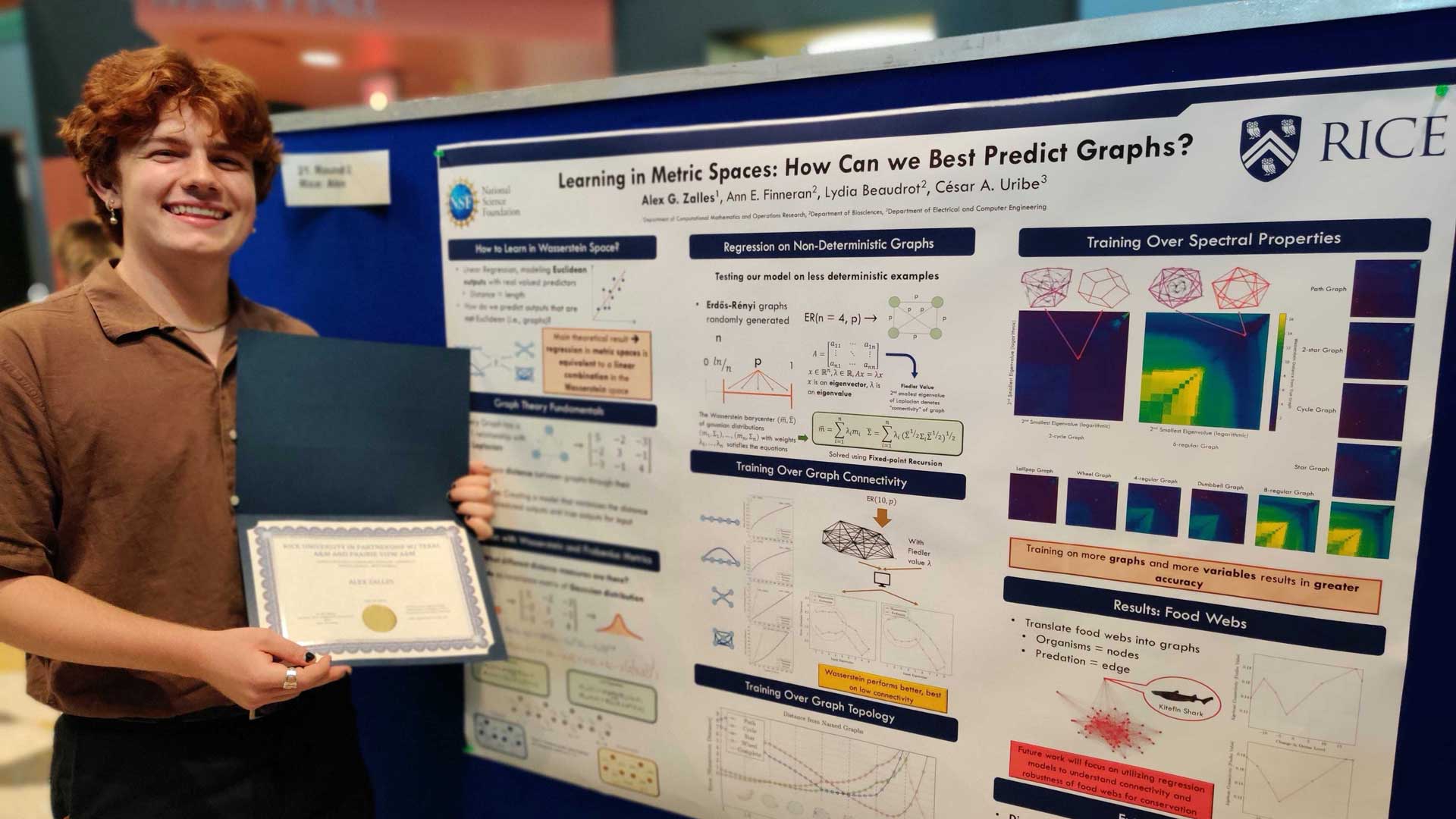The poster created by Alex Zalles, a junior in operations research enrolled in the Google-funded Research Experience for Undergrads program at Rice University, has been named the Best Presentation in the summer’s concluding poster session.
“The research I did,” Zalles said, “involves graph prediction using regression. This means we would create a model that, when different variables are input, we could then see what graph should correspond to that variable.”
Zalles spent the 10-week program studying statistics and data science at Rice. His poster is titled “Learning in Metric Spaces: How Can We Best Predict Graphs?”
“The goal of this project is to provide quantitative tools based on machine learning to analyze the behavior and dynamics of food-webs in Sub-Saharan Africa. We seek to understand how different environmental variables change and reshape the topological structure of the food-webs, and ultimately make predictions about the impact of climate change in those ecosystems,” said César Uribe, the Louis Owen Assistant Professor of Electrical and Computer Engineering, and Zalles’ co-author.
This work is supported by the NSF grant titled “MSA: Quantifying the drivers of mammal food web networks over space and time in Sub-Saharan Africa.” The grant is shared by Uribe, Lydia Beaudrot, assistant professor of biosciences, and Annie Finneran, a second-year graduate student in ecology and evolutionary biology, both at Rice.
“We could train our model on various ecological food webs, where organisms are the nodes of the graphs and edges denote predation,” Zalles said, “and each graph would have information about the surrounding area’s temperature, human footprint and other data. Then, we could predict what food webs would look like as these variables change, if temperature rises or humans have a greater impact on the ecosystem.”
Zalles said his approach could be applied to any system where variables have an impact on the shape of graphs, such as population densities and brain imaging.
“Alex worked on developing new regression methods for metric spaces,” Uribe said. “They permit us to explicitly compute and take into account the impact of environmental variables in the topology of the food webs. He quickly learned a lot of the current literature and was able to propose a method that outperforms the current state of the art. Moreover, he coded those methods into algorithms and ran large scale experiments to show outstanding preliminary results.”

